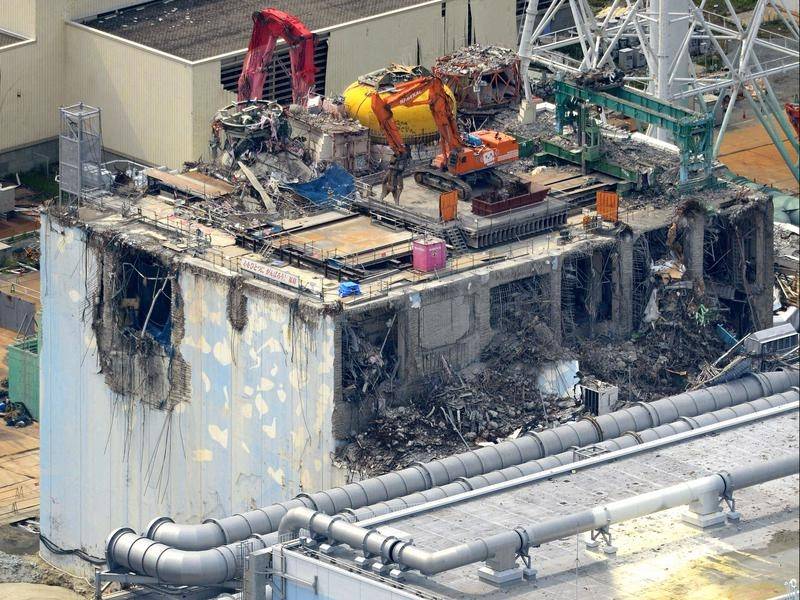Are you curious about how the international community responded to Japan’s nuclear power industry after the devastating Fukushima disaster? Well, let’s explore the actions taken by various countries and organizations in the aftermath of the 2011 earthquake, tsunami, and nuclear accident. The Fukushima Daiichi nuclear plant experienced a catastrophic meltdown, causing severe core damage and the release of radioactive materials. It’s time to uncover the truth about the international response and see if the world stepped up to the plate. Join us as we delve into the impact, challenges, and unresolved issues surrounding Japan’s nuclear power industry post-Fukushima.
Impact of the Fukushima Disaster
The Fukushima disaster had a profound impact on Japan and its citizens, changing public opinion and leading to a significant decrease in the share of nuclear energy in the country’s electricity supply. The long-term consequences of the nuclear accident are still being studied, particularly in terms of public health and the environment. The release of radioactive materials from the Fukushima Daiichi nuclear plant raised concerns about the safety and regulation of nuclear power worldwide. It highlighted the need for stricter nuclear regulation and stronger safety measures to prevent similar accidents in the future. The incident also led to increased safety concerns among the public, resulting in a loss of trust in nuclear power. As a result, Japan’s share of nuclear energy in its electricity supply dropped from 25% before the Fukushima accident to zero in 2012, and only 1.7% in 2016. The Fukushima disaster served as a wake-up call for the potential risks and consequences of nuclear power, and it sparked debates about the future of nuclear energy and the importance of renewable alternatives.
Response and Heroics
After the devastating Fukushima disaster, you witnessed the heroic response of plant manager Masao Yoshida and Japan’s Prime Minister Naoto Kan in taking decisive action to control the nuclear meltdown. Yoshida, despite the risks, sent in a suicide squad to vent and cool the reactors. Kan, on the other hand, took a hands-on approach and confronted Yoshida in person, forcing workers to stay at the plant and pump water onto the reactors. The U.S. also pushed Japan to take heroic measures, even if it meant risking more lives, in order to bring the situation under control. The actions of these individuals and the workers and military personnel at the Fukushima plant are widely recognized and respected by Japanese citizens.
| Heroic Actions | Impact |
|---|---|
| Yoshida sent suicide squad to vent and cool reactors | Showed commitment to mitigating the disaster |
| Kan confronted Yoshida and forced workers to stay at the plant | Demonstrated leadership and determination |
| U.S. pushed Japan to take heroic measures | Highlighted the seriousness of the situation |
| Actions of workers and military personnel respected by Japanese citizens | Fostered public trust and appreciation |
The response and heroics displayed in the aftermath of the Fukushima disaster highlight the importance of evacuation plans, nuclear safety, power shortages, public opinion, and emergency response. These factors played a crucial role in the efforts to control the nuclear meltdown and mitigate the consequences of the disaster.
Japan’s Preparedness and Lessons Learned
To further understand the impact of the Fukushima disaster, it is important to recognize the lessons learned and Japan’s preparedness for future emergencies. Here are three key points to consider:
- Preparation for emergencies: The Fukushima disaster served as a wake-up call for Japan, motivating the country to enhance its preparedness for future emergencies. Recognizing the need to be ready for any potential risks, Japan has focused on improving its disaster response strategies and infrastructure.
- Future war preparedness: In addition to natural disasters, Japan has also prioritized preparedness for potential war situations. The Fukushima disaster highlighted the importance of a strong military presence and cooperation with international counterparts. As a result, Japan’s Self-Defense Forces now engage in more joint maneuvers with their American counterparts, enhancing their readiness for any future conflicts.
- Valuable lessons: The Fukushima disaster provided valuable lessons for Japan and the international community. It raised awareness about the potential risks and consequences of nuclear power, leading to improvements in safety regulations and emergency response procedures. These lessons are crucial in ensuring the safety of nuclear facilities and preventing similar incidents in the future.
International Impact
An international response to Japan’s nuclear power industry post-Fukushima disaster has had significant implications for global safety regulations and emergency preparedness. The lessons learned from the Fukushima accident have led to an increased emphasis on emergency preparedness and the strengthening of nuclear regulation worldwide. Public opinion on nuclear power has also been impacted, with safety concerns becoming more prominent. The international community has recognized the potential risks and consequences of nuclear power, leading to a greater focus on improving safety measures and emergency response capabilities.
| Lessons Learned | Emergency Preparedness | Nuclear Regulation |
|---|---|---|
| – The Fukushima disaster served as a wake-up call for the international community, highlighting the need to be prepared for out-of-the-box scenarios. | – Countries have practiced for various crisis situations, such as famine, drought, pandemics, and superstorms. | – Stricter safety regulations and standards have been implemented to prevent similar accidents. |
| – The incident raised awareness about the potential risks and consequences of nuclear power, leading to a reevaluation of its role in the global energy mix. | – Emergency response plans have been enhanced and updated to ensure a more effective and coordinated response to nuclear emergencies. | – International cooperation and information sharing on nuclear safety have been strengthened. |
| – The Fukushima disaster has provided valuable lessons on the importance of transparency, accountability, and communication during nuclear emergencies. | – Training and drills for nuclear emergency response have become more comprehensive and frequent. | – Independent regulatory bodies have been established or empowered to ensure effective oversight of nuclear power plants. |
Unresolved Issues
In the wake of the Fukushima disaster, numerous unresolved issues continue to plague Japan’s nuclear power industry. These issues have significant implications for the decommissioning process, evacuation plans, nuclear safety regulation, public health impact, and the search for nuclear power alternatives.
- Decommissioning Challenges: The decommissioning of the Fukushima Daiichi nuclear plant remains a complex and lengthy process. The removal of melted debris is particularly challenging, and the lack of transparency and independent oversight in the decommissioning process has raised concerns.
- Evacuation Plans: The determination of the appropriateness of evacuation plans is a major hurdle for reactor restarts. Approximately 30,000 Japanese citizens who lived near the Fukushima plant are still under evacuation orders, creating uncertainty for evacuated residents.
- Nuclear Safety Regulation: The Fukushima accident raised concerns about the safety and regulation of nuclear power worldwide. The establishment of the independent Nuclear Regulation Authority and tougher regulatory standards aimed to restore public trust. However, the lack of independent oversight organizations hinders the resolution of important policy issues related to nuclear energy.
These unresolved issues underscore the challenges that Japan’s nuclear power industry faces in rebuilding public trust, ensuring safety, and exploring alternative energy sources. It is crucial for the government and industry stakeholders to address these issues in order to move forward with a sustainable and safe energy future.
Impact of the Fukushima Accident and Loss of Public Trust
The Fukushima accident resulted in a significant loss of public trust in Japan’s nuclear power industry. The incident raised concerns about nuclear safety and the potential risks associated with nuclear power. As a result, public opinion on nuclear power in Japan has shifted, with a majority now favoring either the immediate shutdown or gradual phaseout of nuclear power. The percentage of the public who believe nuclear power is necessary has dropped from 35.4% in 2010 to 17.9% in 2017, while the percentage of the public who do not trust nuclear power has increased from 10.2% in 2010 to 30.2% in 2017. The establishment of the independent Nuclear Regulation Authority and tougher regulatory standards did not fully restore public trust in nuclear safety regulation. Instead, the majority of the public now supports the phasing out or abolition of nuclear power. This loss of trust has also prompted a greater focus on renewable alternatives and the development of a more sustainable energy policy. Resolving the policy issues related to nuclear energy and addressing the concerns of the public will be crucial in moving forward.
Policy Issues and Challenges
Challenges in the policy surrounding Japan’s nuclear power industry post-Fukushima disaster include decommissioning, waste management, and plutonium stockpile.
- Decommissioning challenges: The process of decommissioning the Fukushima Daiichi nuclear plant is a complex and time-consuming task. It is estimated to take at least 40 years to complete. The removal of melted debris is particularly challenging and requires innovative technologies and approaches. Additionally, the lack of transparency and independent oversight in the decommissioning process raises concerns about the effectiveness and accountability of the efforts.
- Plutonium stockpile: Japan possesses a significant amount of separated plutonium, approximately 47.3 tons, making it the largest stockpile among non-nuclear weapon states. The management of this stockpile raises concerns not only domestically but also internationally. Questions about the purpose, security, and potential implications of Japan’s plutonium stockpile need to be addressed to ensure safe and responsible management.
- Independent oversight: The lack of independent oversight organizations is a major obstacle in resolving policy issues related to the nuclear power industry. The establishment of independent oversight organizations is crucial for ensuring transparency, accountability, and gaining public trust. Without independent oversight, decision-making processes can be hindered, and the resolution of important issues can be delayed.
In addition to these challenges, issues such as evacuation plans and the determination of their appropriateness, as well as legal lawsuits against utilities and the government, further complicate the policy surrounding Japan’s nuclear power industry post-Fukushima disaster. Addressing these challenges and establishing effective policies is essential for rebuilding public trust and ensuring the safe and responsible operation of the nuclear power industry in Japan.





